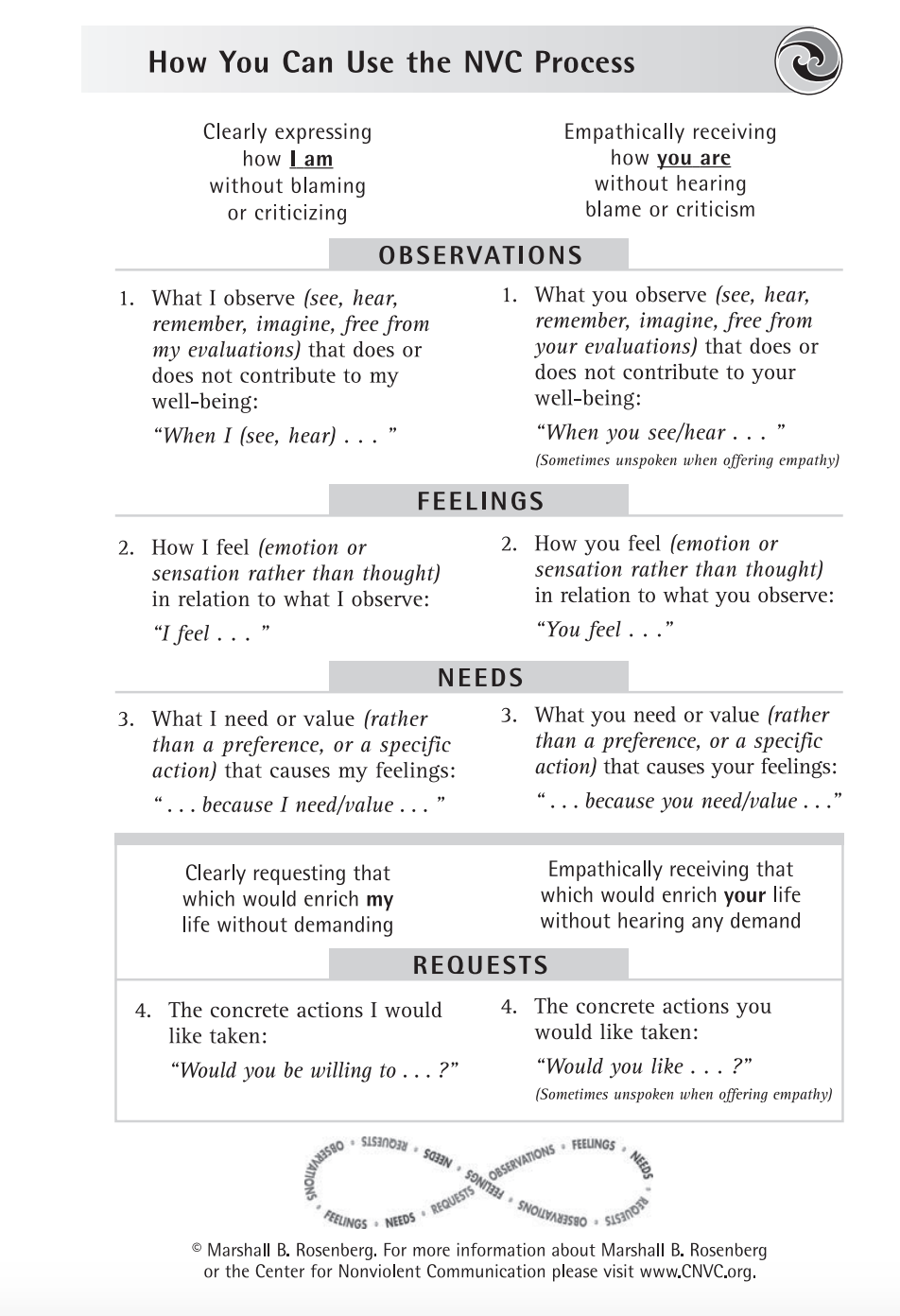Tonight my very dear friend Bria came over for some grilling and chilling. That’s my new thing. We got into a discussion about nonviolent communication, specifically, how to express yourself during any type of conflict in relationships, without attacking, judging or blaming the other person involved. This kind of thing can sometimes be hard for me, as I like to talk about an issue until every single thought I’ve ever, ever had about it has officially been spoken out loud and understood. (Not always helpful).
Nonviolent, in this context, means being able to express yourself without blaming, judging, guilting, shaming, or threats. This is a super useful process because it doesn’t put the other person into defense mode, and it fully honors your experience and the other person’s experience.
“Nonviolent Communication focuses on self-empathy (defined as a deep and compassionate awareness of one’s own inner experience), empathy (defined as an understanding of the heart in which we see the beauty in the other person), and honest self-expression (defined as expressing oneself authentically in a way that is likely to inspire compassion in others).”
Here’s the process Bria suggested:
- State the truth of what happened – just the facts, without any feelings/emotions/judgments involved. What is it that happened, objectively?
- State how it made you feel when that thing happened – again, without judging, blaming or assuming anything about the other person’s intentions.
- State what the need or value is that you personally have, that causes those feelings to arise.
- Offer a solution/request that could be helpful in these situations in the future.
Example:
- I heard you playing music in the other room at 3am.
- Waking up to the music made me feel frustrated,
- Because I’m a light sleeper and I really value getting a full night’s sleep.
- Would you be willing to put headphones in if you’re listening to music after 11pm?
Loved that. It doesn’t put any blame or judgment or attack on the other person, just very clearly states needs and keeps your side of the street clean. It’s likely to be so much better received by the other person, rather than saying something like, “It was really disrespectful of you to play music while I was sleeping. You know I’m a light sleeper, and you clearly didn’t consider me at all. Why wouldn’t you have thought to use headphones?”
Right!?
Upon some research, I learned that this is called the 4 Part Nonviolent Communication (NVC) Process.

Bria, you’re a wise friend. Thank you.
Hope you guys find this helpful too. :)
Love,
jenny



Leave a comment!